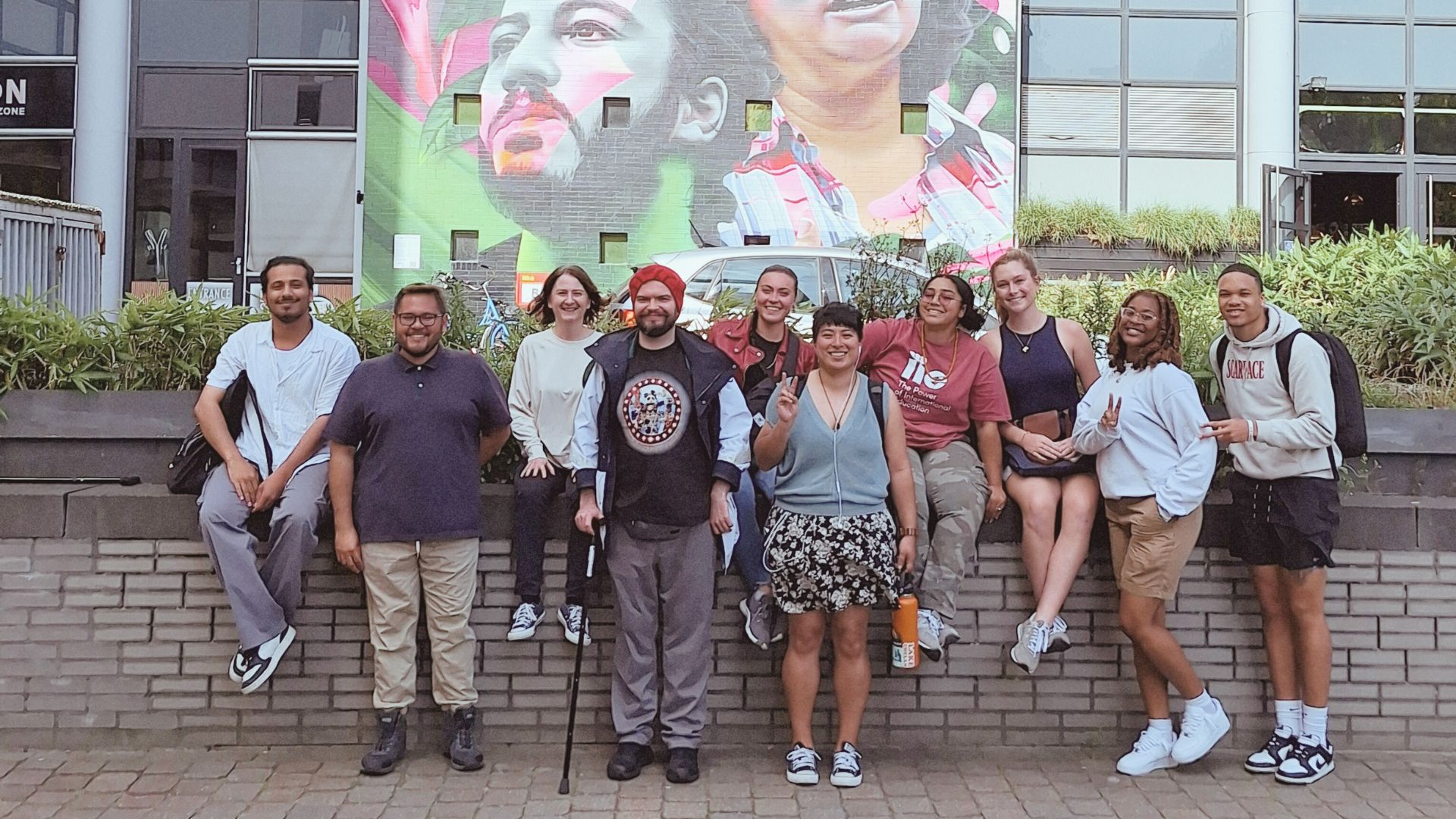Youth democracy: a sustainable and just future
28 August 2024
Summer School 2024 offers students the tools and inspiration to actively contribute to the democratic processes of today and tomorrow.

During summer, The Hague Summer School was organised again. In this edition, the programme was based on the practical application of the United Nations Sustainable Development Goals (SDGs), which ran like a thread through the summer programme. In line with this, the Centre of Expertise Global & Inclusive Learning provided a module within the Summer School: Youth in Democracy: Imagining Sustainable, Inclusive, and Participatory Democracies.
Imagining Sustainable, Inclusive, and Participatory Democracies
At a time when global elections are of great importance, it is important to equip young people with the right tools and knowledge to actively participate in democratic processes. Especially for Summer School 2024, Dr Tamara Takacs has developed the module Imagining Sustainable, Inclusive, and Participatory Democracies. It focuses on the different ways young people can actively and inclusively participate in democracy and how important their involvement is for its functioning.
The goal of the module is to make students aware of the complexity of democratic processes and encourage them to think critically about the challenges and opportunities of participation.
Guest lectures by experts
Participants were immersed in in-depth discussions and analyses led by experts on democracy, populism, and digitalisation. For example, Asier Garrido Muñoz (lecturer in International Organisational Law) had students critically reflect on the current state of democracy and the ways in which populist movements can undermine it. This critical approach helped participants understand how fragile democratic systems can be and why it is important to remain vigilant and active.
In addition, professor Mendeltje van Keulen (research group Changing Role of Europe) led sessions on democratic deliberation and the role of digitalisation in electoral processes. In a world where technology is increasingly influencing the way elections are organised and influenced, it is important to understand both the opportunities and the risks. Students gained insight into how digital tools can both contribute to a more inclusive electoral process, but also how they can be misused to undermine democracies.
A look behind the scenes
To link theoretical knowledge to practice, students visited organisations such as the Young Climate Movement and the Netherlands Institute for Multiparty Democracy (NIMD). During field trips in and around The Hague, participants had a unique opportunity to see how youth engagement is put into practice, both at local and national level. These experiences gave the students valuable insights into how they themselves can contribute to democracy.
Inclusive education as the basis of empowerment
A highlight of the course was the involvement of professor Naomi van Stapele (research group Inclusive Education) who spoke about inclusive education as the basis of empowerment. Her insights, together with the inspiring stories of two Kenyan youth activists, made a deep impression on the students and sparked their desire to actively contribute to a more just and sustainable world themselves.
Want to know more about The Hague Summer School?
There will be another Summer School in the summer of 2025.
Read more about The Hague Summer School and find out what it has to offer.